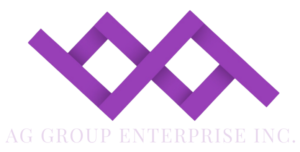
Have you been thinking of immigrating to Canada from Iran and aren’t sure where to start? Well, we don’t blame you. With over 60 visas and immigration programs, navigating your way through each one and its requirements is not easy. Choosing the wrong one could easily result in disappointment. In this article, we’ll take you through the ins and outs of the immigration system so that you can find the right choice for you and your family.
Let’s dive straight into the topic! This is your ultimate immigration roadmap of immigrating to Canada from Iran
Express Entry to Canada
There are various direct routes to take when you are immigrating to Canada. Which one you choose to take depends entirely on your circumstances and personal experience. Take a look at some of the most popular direct Canadian immigration programs below.
1. Express Entry
Canada’s Express Entry system was designed to help speed up the visa application process for skilled and experienced workers immigrating to Canada from Iran. The online management system has three immigration programs, each of which is geared toward workers of different skill levels and work experience. These three programs are:
- The Federal Skilled Worker Program;
- The Federal Skilled Trade Program;
- The Canadian Experience Class;
Canada’s Express Entry applicants are ranked according to the Comprehensive Ranking System (CRS). To enter an Express Entry draw, you’ll need a profile containing information about your:
- Age;
- Language abilities (English and/or French;
- Work experience;
- Education/Qualifications
- Job offer (if applicable);
- Provincial Nominations (if applicable); and
- Ability to settle in Canada
Your profile will then be scored and will be entered into a draw pool with other applicants, and if you have one of the highest CRS scores, you’ll get an Invitation to Apply (ITA) for permanent residency in Canada.
Let’s take a closer look at the three federal Express Entry programs.
Federal Skilled Worker Program
Canada’s Federal Skilled Worker Program (FSWP) helps highly skilled and experienced workers get permanent residence in Canada. The FSWP has a “pre-scoring system” that requires applicants to score at least 67 out of a possible 100 points before they can receive their CRS score.
- At least 1 year of skilled work experience in a managerial, professional, or technical/skilled trade job (skill level 0, A, or B)
- Language skills in English/French – CLB/NCLC 7
- Have a certificate, diploma or degree from a Canadian high school or post-secondary institution or an Educational Credential Assessment (ECA) of your foreign education
- Proof of funds to show you can support yourself and your family
- Be admissible to Canada
Federal Skilled Trades Program
Canada’s Federal Skilled Trade Program (FSTP) helps skilled and experienced trade workers get permanent residence in Canada. To qualify to apply through this Express Entry Program, you’ll need to meet the following requirements:
- Meet the required language abilities in:
- reading & writing – CLB/NCLC 4
- listening & speaking – CLB 5
- Have at least 2 years of full-time work experience (or part-time equivalent) in a skilled trade within the last 5 years
- Meet the job requirements for your skilled trade
- Have a:
- valid job offer of full-time employment for at least 1 year, or
- certificate of qualification in your skilled trade from a Canadian provincial, territorial or federal authority
You will also need to have experience or currently be employed in one of the following trades to qualify for the FSTP:
- Industrial, electrical, and construction trades
- Maintenance and equipment operation trades
- Supervisors and technical jobs in natural resources, agriculture, and related production
- Processing, manufacturing, and utilities supervisors and central control operators
- Chefs and cooks
- Butchers and bakers
The Canadian Experience Class
The Canadian Experience Class (CEC) helps skilled workers who have at least one year of Canadian work experience, in the last three years, apply for permanent residency. To qualify you’ll need to meet the following requirements:
- Meet the required language levels needed for your job for each language ability
- Canadian Language Benchmark 7 for NOC 0 or A jobs or
- Canadian Language Benchmark 5 for NOC B jobs
- You’ll need language test results for:
- writing
- reading
- listening
- speaking
- have at least 1 year of skilled work experience in Canada, in the last 3 years before you apply – you can meet this in a few different ways:
- full-time at 1 job: 30 hours/week for 12 months = 1 year full-time (1,560 hours) equal amount in part-time work: for example 15 hours/week for 24 months = 1 year full time (1,560 hours)
- You can work as many part-time jobs as you need to meet this requirement.
- full-time work at more than 1 job: 30 hours/week for 12 months at more than 1 job = 1-year full time (1,560 hours)
- full-time at 1 job: 30 hours/week for 12 months = 1 year full-time (1,560 hours) equal amount in part-time work: for example 15 hours/week for 24 months = 1 year full time (1,560 hours)
- have gained your work experience by working in Canada while under temporary resident status with authorization to work
- Be admissible to Canada
2. Provincial Immigration to Canada
The Provincial Nominee Program (PNP) was designed to help 11 of Canada’s 13 provinces and territories fill the labour needs of the region and help boost the economy.
To qualify to apply for permanent residency through a PNP, you would have to be able to show that you have relevant work experience and a job offer from a company in the province you are applying to.
Each province has its own requirements and collectively has over 80 different streams or programs to choose from. Below are the participating provinces with PNPs.
- Alberta;
- British Columbia
- Manitoba
- New Brunswick
- Newfoundland & Labrador
- Nova Scotia
- Ontario
- Prince Edward island
- Saskatchewan
- Northwest territories
- Yukon
3. Community and Region Driven Programs
There are various programs aimed at helping to develop and support smaller communities and regions in Canada. Two, in particular, have already helped thousands of newcomers make their way to Atlantic Canada as well as various rural regions in Ontario, Manitoba, Saskatchewan, Alberta, and British Columbia. These two programs are the Atlantic Immigration Program and The Rural and Northern Immigration Pilot.
Atlantic Immigration Program
Are you dreaming of a life removed from the hustle and bustle of big city centres, yet still with the same quality of life and job opportunities? Atlantic Canada may be the destination for you! And to make it just that much easier to get there, the Canadian government has created The Atlantic Immigration Program (AIP).
Originally a temporary pilot program, the AIP has recently been made a permanent immigration program due to its huge success. To qualify, you will need to meet
- Have a high school certificate
- Have a valid job offer in one of the 4 Atlantic provinces (New Brunswick, Nova Scotia, Newfoundland & Labrador, Prince Edward Island
- Meet language requirements (minimum CLB 4)
- Have enough settlement funds; and
- Have graduated from a publicly-funded learning institution in the Atlantic region (minimum 2-year program).
Rural & Northern Immigration Program

The Rural and Northern Immigration Pilot helps skilled immigrant workers get permanent residency while assisting smaller communities in Canada to fill gaps in the labour market. The following communities are participating in the pilot programs:
- North Bay, Ontario
- Sudbury, Ontario
- Timmins, Ontario
- Sault Ste. Marie, Ontario
- Thunder Bay, Ontario
- Brandon, Manitoba
- Altona/Rhineland, Manitoba
- Moose Jaw, Saskatchewan
- Claresholm, Alberta
- Vernon, British Columbia
- West Kootenay (Trail, Castlegar, Rossland, Nelson), British Columbia
To qualify for the RNIP, you will need to meet the following requirements:
- have at least 1 year of relevant work experience or have graduated from a publicly-funded post-secondary institution in a participating community
- meet or exceed the minimum language requirements
- NOC 0 and A: CLB/NCLC 6
- NOC B: CLB/NCLC 5
- NOC C and D: CLB/NCLC 4
- Meet the required educational requirements
- have a Canadian high school diploma or post-secondary qualification; or
- have an educational credential assessment (ECA) of your foreign credential
- prove you have enough money to support your transition into the community
- intend to live in the community
- meet community-specific requirements
4. Occupation Driven Programs
Canada has two main sectors that are hugely in-demand of skilled talent: the agricultural, care provider, and tech sectors. Each industry has various programs that help skilled workers immigrate to Canada in their area of expertise.
Agri-Food Pilot
The Agri-food Pilot was created to help boost the agricultural sector, which is in great need of skilled workers in the following specialised areas:
- meat product manufacturing
- greenhouse, nursery, and floriculture production, including mushroom production
- animal production, excluding aquaculture
- cattle ranching and farming
- hog and pig farming
- poultry and egg production
- sheep and goat farming
- other animal production
To qualify, you’ll need to:
- have at least 1 year of non-seasonal full-time work experience in the last 3 years through a Temporary Foreign Worker Program
- have a permanent full-time job offer in a qualifying occupation
- meet the language requirements – CLB4
- have a Canadian high school diploma or an ECA if you have a foreign qualification
- enough money to settle in Canada
- have maintained your temporary resident status (if already in Canada)
Home Care Provider Pilot
The Home Care Provider Programs are a gateway to permanent residency for both home care and childcare providers. There are two separate programs to apply through:
The Homecare Support Worker Pilot helps support workers get permanent residency in Canada. There are 2,750 spots available for 2022 through this pilot.
The Homecare Child Care Provider Pilot helps childcare workers get permanent residency in Canada. The program will be open for
If you have more than 24 months of full-time work experience you could qualify to apply directly for permanent residency, and your family can join you too. To qualify you will need to meet the following requirements:
- have at least 24 months of work experience in the last 36 months
- meet the language level – CLB 5 in English or NLCL5 in French
- at least 1 year of post-secondary education (ECA is required if obtained outside Canada)
- be admissible to Canada.
If you have less than 24 months of experience you will need to apply for a work permit with your permanent residency application. If successful, you will get an employer-specific work permit and once you have at least 24 months of work experience you will qualify for permanent residence.
5. Business Immigration: Start-up Visa Program
For those looking to start a new or invest in an existing business venture in Canada, the Start-up Visa Program is ideal. You will need to meet various requirements to qualify for this program:
- Have a letter of support from a designated organisation;
- Have at least 10% voting rights;
- Have more than 50% attached to outstanding shares (with the designated organisation);
- Play an active role in the running of your business;
- Be located in Canada;
- Meet the minimum Canadian Language Benchmark (CLB) level 5;
- Have enough settlement money to support yourself and your family.
There are also various provincial entrepreneur programs that offer permanent residency to applicants looking to bring their business to a particular province or territory in Canada.
Frequently Asked Questions About Canada’s Immigration System
1. How much money do you need to immigrate to Canada?
If you plan on moving to Canada alone, you would need about $15,420. This would include your proof of funds, government fees as well as other expenses. A couple would need about $20,000. Below is a breakdown of the amount of settlement fund you would need to immigrate to Canada.
| Proof of Funds to Immigrate to Canada | |
| Number of Family Members | Funds Required (In CAD) |
| 1 | $13,213 |
| 2 | $16,449 |
| 3 | $20,222 |
| 4 | $24,553 |
| 5 | $27,847 |
| 6 | $31,407 |
| 7 | $34,967 |
| For each additional family member | $3,560 |
2. Can I go to Canada without a job offer?
Yes you can. There are various programs that don’t require a job offer. For example, The Express Entry system has 2 programs that will allow you to immigrate to Canada without a job. The Federal Skilled Worker Program is one of them and the other is the Federal Skilled Trades Program, (provided you have a certificate of qualification in your trade from a Canadian provincial, territorial or federal authority)
3. What qualifications do you need to immigrate to Canada?
This depends on the immigration or visa program you are applying for. Although only one Express Entry program has education requirements, having post secondary education qualification can increase your Comprehensive Ranking System (CRS) score and therefore increase your chances of success. Below is a comparison of the Express Entry Programs qualification requirements.
| Comparison of Express Entry Qualification Requirements | |
| Number of Family Members | Funds Required (in Canadian dollars) |
| Federal Skilled Worker Program | Secondary education
You can get more selection criteria (FSW) points for your post-secondary education |
| Federal Skilled Trades Program | Not required |
| Canadian Experience Class | Not required. |
Move Forward With AG Group!
Take steps to secure your and your family’s future by immigrating to Canada from Iran! A visa to Canada is one of the most critical steps one can take for a stable and guaranteed future life in Canada and is one of the most important life changing decisions one can make. For your and your family’s future, apply as soon as possible!
Immigrating to Canada is a lengthy and difficult process. It is natural to be confused if you are applying for a visa in Canada since it would be the first time you would have seen any such document and with 60+ visa programs, it is natural to be confused about which one is right for you. In order to smoothly complete your application, hire AG Group Enterprise Inc. We have been providing immigration help & advice for over a decade and have the skills and knowledge required to help you through the ordeal.
With AG group’s help, you can ensure a stable and secure future for you and your family.




